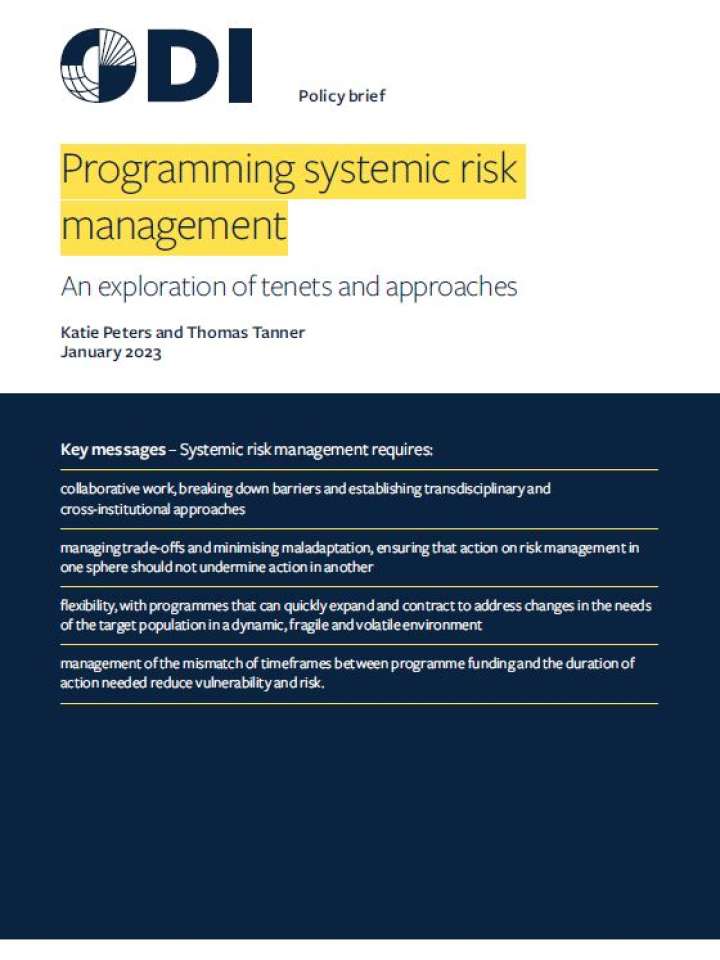Programming systemic risk management
This brief presents a set of tenets for operationalising systemic risk management. If successful, such approaches could help to prevent replication as well as to enhance awareness of trade-offs and the risks of maladaptation. Development, humanitarian and peacebuilding programmes are often limited in their abilities to consider the interacting drivers of vulnerability and systemic risks which they face. In this brief, the Overseas Development Institute (ODI) authors argue that these sectors need to face up to complexity. A systemic risk management approach is required to improve programmes in complex settings and to anticipate trends, challenges and emerging risks for different geographic and time horizons.
Orthodox approaches tend to focus on individual hazards specific to certain populations, time horizons and geographic scales. Such limitations may inadvertently amplify vulnerabilities and risks in other sectoral and geographical areas, undermining the effectiveness of external assistance programmes. With the UN Framework Convention on Climate Change’s upcoming Conference of the Parties, COP28, expected to highlight the complexities of climate risks and impacts in fragile settings, getting these foundational understandings of risk right may also help to achieve multiple positive impacts across a diverse range of risks, leading to safer and more peaceful risk trajectories.
Explore further
